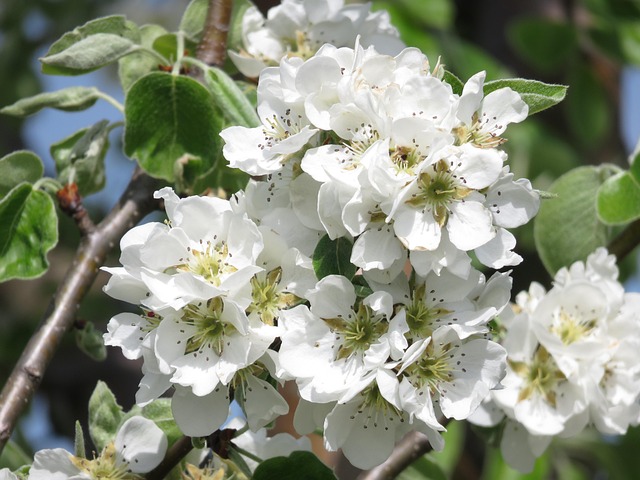Rooted, Growing … Still Waiting
One of my closest friends has two pear trees in her backyard, and they produce more fruit than she can handle. Buckets and buckets, year after year. I got inspired and fell in love with the idea of having pear trees of my own, so I planted two in my yard seven or eight years ago. They’re beautiful and robust, and every spring, they burst into full bloom, covered in delicate white blossoms, as if they’re auditioning for the cover of a gardening catalog. In fact, they’re everything I was hoping for—except for the part where they actually produce fruit.
My biggest yield? Four pears.
I water. I fertilize. I prune. I beg. I plead. Nothing. Just a whole lot of leaves and a spectacular annual flower show, with absolutely no follow-through. I sometimes wonder if I should give up on them. Cut them down. Start over. Ask the neighbor where they got their apple trees and plant those instead. These pear trees are taking up prime real estate.
So, when I hear this Sunday’s gospel about the fig tree, I completely understand the dissatisfaction. The people who planted the tree had high hopes for it. You don’t put in the work of digging, watering, and waiting unless you believe it will eventually bear fruit. The fig tree was planted in a perfect spot, carefully tended, and given every opportunity to thrive—yet it wasn’t producing anything. The owner of the vineyard, understandably frustrated, wants to cut the tree down. If something isn’t producing results, why keep it around?
And that’s when I start to see myself in this story. (I never thought I’d relate so much to a tree, but here we are.)
I was planted with high hopes, too. Jesus chose me with the confidence that I’d bear fruit. The people I serve, the people I work with, and the people I work for — they’re counting on me to be rooted in purpose, offering something of substance. And let’s be clear: I have high expectations of myself, too. I stepped into this discipleship role fully expecting to thrive. But instead, some days it feels like I’m just taking up space, waiting for the moment when people catch on and realize that I’m the vocational equivalent of a decorative houseplant.
I expect myself to be fully grown, fully flourishing, and fully competent at this whole discipleship thing. But the reality is that some days, it feels like all I’m good at is being shady or looking pretty. (And even that is hit or miss.) I make mistakes. I fall short. I have proven time and again that I am capable of missing the mark in spectacular fashion. Whether it’s my vocation, my faith, or my sense of purpose—whatever it is, I thought I’d be better at this by now.
But then there’s the gardener—the unsung hero of the story—who steps in like the world’s most optimistic plant dad.
“Give it more time. I believe in it.”
The gardener doesn’t see a tree that’s failed. He sees one that’s not quite there yet, and instead of getting rid of it, he rolls up his sleeves and decides to invest in it. No panic, no ultimatums — just patience, grace, and a little extra fertilizer.
And then I think about my own pear trees. I haven’t cut them down either. They’re healthy, growing, and beautiful. Have they completely fulfilled the purpose for which I planted them? No.
Not yet.
But I see nothing but potential in them.
And that’s the irony — the gardener has faith in me, and I have faith in my own trees, but I get so caught up in what’s missing about myself that I forget to notice how much growth has already happened and how much potential there still is.
The fig tree may not have fruit yet, but it isn’t dead. Its roots are deeper. Its branches are stretching. Its leaves provide shade. It is becoming what it was meant to be, even if it’s taking its sweet time about it. I may not be where I thought I’d be, but I’m not where I was. Even in the waiting, something good has been taking shape. Fruit comes with time—but growth is happening now. And that, in itself, is reason enough to give the tree another season.
Every year, I stand in my yard, looking up at my pear trees, wondering if this will finally be the year. And every year, I say same thing:
They just need more time. They’re not quite there yet.
And maybe, just maybe, all I need is a little more time, too.
By Darcie Lich


